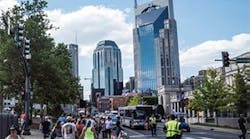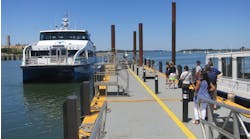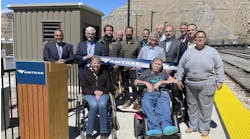The SEPTA board approved a new operating budget Thursday that will require no fare increases or service cuts.
With none of the contentious debate that has accompanied some budget battles in past years, the board approved a $1.2 billion operating budget and a $311.5 million capital budget for the fiscal year that begins July 1.
SEPTA bus, subway, trolley, and rail fares went up in July and are not slated to rise again until July 2013.
Agency officials also met with Philadelphia school parents to assure them that SEPTA would work with the cash-strapped School District of Philadelphia to continue providing no-cost transportation for students who live beyond walking distance of their schools.
SEPTA and district officials are to meet Friday to discuss the issue.
The district says its budget woes could force it to cut $26 million in transportation subsidies for students.
SEPTA general manager Joseph Casey minimized the threat, saying the transportation money was provided by the state and was not jeopardized by any state cuts. He said the district's problem was that it was not being reimbursed promptly by the state for its purchases of discounted SEPTA passes for students.
"This is a minor problem causing a big issue," Casey told parents at the board meeting. He said that the state reimburses the district for 85 percent of the cost of the passes and that SEPTA gives the district a $3.5 million annual credit to make up the other 15 percent of the cost.
"If we can help them get a quicker reimbursement from the state, we will do it," Casey said during a meeting with the parents after the board session.
But Michael J. Masch, the district's chief financial officer, said SEPTA could solve the problem by waiting to get paid for the passes until the state pays the district.
"Either we have to get paid sooner, or we have to pay SEPTA later," Masch said.
He said the state withholds reimbursement until the year after the district outlays the money.
"If we don't work this out together, SEPTA is going to have a $26 million hole in its transit budget," Masch said.
About 45,000 Philadelphia district and nonpublic students get the free transit passes, Masch said.
The SEPTA operating budget approved Thursday is about 3.9 percent higher than this year's $1.1 billion budget.
Although SEPTA expects a 4.5 percent increase in bus, rail, and subway ridership to boost passenger revenue by about $19 million, that won't be enough to keep up with rising costs, especially for employee benefits and diesel fuel. Operating costs are expected to rise about $46 million.
Passenger fares will pay about 35 percent of SEPTA's total operating costs next year. Most of the rest will come from state ($576 million), local ($82 million), and federal ($82 million) subsidies.
The operating budget assumes an increase of about 6 percent in fringe benefits such as medical insurance and pension contributions. Wages for SEPTA's union workers are to increase 2.5 percent. Wages and benefits, the biggest cost of running SEPTA, will be $865 million next year, up about 4 percent from the current $832 million.
The agency's capital budget, for spending on such things as buses, railcars, stations, and signal systems, is about $8 million, or 2.6 percent, higher than the current capital budget of $303.7 million.
The funding is about 25 percent lower than two years ago because state transit funding was cut last year when federal transportation officials rejected Pennsylvania's bid to put tolls on I-80. That has pushed many of SEPTA's big-ticket plans to the back burner, with 20 projects deferred.
Those postponed projects include the $100 million remake of the dilapidated City Hall subway concourse, new transportation centers in Ardmore and Paoli, and replacement of antiquated power substations for the Regional Rail network.
Casey said he hoped state leaders would find a way to replace the money cut from the capital budget, noting that Gov. Corbett had formed a statewide panel to study ways to pay for more transportation spending.
The SEPTA board also heard Thursday from a leader of the union for train engineers, asking that SEPTA rescind its new requirement that engineers wear fluorescent green-yellow vests.
Tom Dorricott of the Brotherhood of Locomotive Engineers and Trainmen said the vests - which SEPTA said were designed to improved rail security - could make engineers targets for terrorists. And he said the vests were a step toward mandatory uniforms, which engineers have resisted.
SEPTA and its rail unions are in acrimonious labor negotiations and the vest issue has become part of the labor-management battle. The engineers have been working without a new contract since July.
Contact staff writer Paul Nussbaum at 215-854-4587 or [email protected].
Copyright 2008 LexisNexis, a division of Reed Elsevier Inc. All rights reserved.
Terms and Conditions | Privacy Policy


